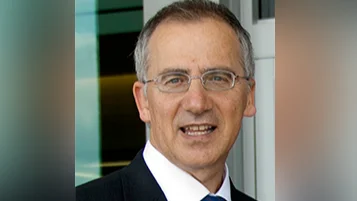
Since childhood, Jesus Mata struggled with a persistent cough, unaware it signaled a serious illness. In 2020, after undergoing an appendectomy due to pain on his right side, doctors discovered cancer. Subsequent surgery removed part of his intestine, leaving him cancer-free but facing another health concern.
“They noticed I had some scar tissue on my lungs,” Mata recalled. “It was hard to hear because I just beat cancer, and now they are telling me I have to beat something else?”
Mata consulted Rodeo Abrencillo, MD, from McGovern Medical School at UTHealth Houston, who diagnosed him with idiopathic pulmonary fibrosis (IPF), the most severe form of pulmonary fibrosis. This disease causes lung scarring and breathing difficulties due to lung tissue stiffness.
“Mr. Mata was not a candidate for a lung transplant because he was diagnosed with cancer recently,” said Abrencillo. “Usually, patients have to be cured of cancer for five years before they are considered for transplant.”
Mata's treatment involves medication to slow disease progression since the condition is irreversible and incurable without a lung transplant. These medications help manage symptoms but cannot reverse existing lung damage.
“More than 25 percent of our patients with IPF exhibit signs of anxiety and depression following diagnosis," Abrencillo noted. "We really try to help them lean on the support of their families and offer them the best resources we have.”
Mata maintains a positive outlook despite his diagnosis. He views it as an opportunity to live fully and hopes to inspire others by embracing each day positively.
“When you get diagnosed with a terminal illness, you finally stop to smell the roses,” Mata said. “I just told myself... I’m just going to enjoy every day... be happy and treat everybody happy.”
Current treatments provide quality life management for IPF patients while researchers seek long-term solutions or cures.
“The pulmonary fibrosis community is very vigorous and investing a lot in research,” Abrencillo stated. “We are hopeful that in the future... there are more than just two drugs... that may either completely halt the progression of scarring or reverse it completely.”